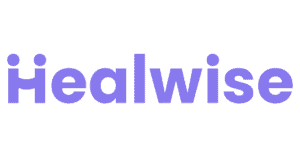It’s hard to believe that the year is almost over. In this final Progress Note of 2022, I want to reflect on what we’ve accomplished at Therapy4thePeople over the past year as well as what’s to come.
Let’s do a quick review of this year’s milestones. In March, we both incorporated as Therapy4thePeople, Inc. and received our first major media mention in the New York Times. In June, we published our 20th educational article (on finding therapy as a refugee). The following month, we published our 1,000th affordable service listing. We received 501c3 tax-exempt status with the IRS in August. And, in October, we wrapped up the pilot year of the Regional Ambassador program.
A hearty thank you to our amazing team and wonderful supporters (like you!) for making this all happen.
Another major accomplishment over the past year has been developing a deeper understanding of the access challenges we’re trying to solve. We’ve also learned more about the type of organization we need to grow into in order to fulfill our mission of increasing access to care.
Two of our most important lessons from the past year:
1. Cost is a major barrier to care but it’s not the only one
We ran an online survey and found that almost 40% of help-seekers consider cost as their top barrier to care. Not being able to find a provider they like or trust was the next biggest barrier (28%). Relatedly, 18% of help-seekers came to our site specifically to find culturally sensitive care.
These results aren’t surprising as they mirror findings from national surveys. Nonetheless, they remind us that the mental healthcare journey is complicated and highly personal, especially for economically and racially marginalized communities. It’s important that our nonprofit understand and address the subjective experience of searching for care. This will be what drives our impact.
2. Building a useful and sustainable service platform is harder than it looks
Two and a half years ago we had a simple idea: put together a list of affordable mental health services, make it so service providers can add their services, and share it with help-seekers. It seemed easy enough. How naive we were!
A lot of our learnings in this area have come from our Regional Ambassadors. They were tasked with adding service listings to our platform and, as listings matured, with conducting quality assurance checks. It shouldn’t have come as a surprise that they encountered many of the same challenges as help-seekers, such as ghost networks and outdated information. Even on the SAMHSA treatment locator! What was really surprising is that when our Ambassadors called clinics to collect information, the people answering the phones sometimes didn’t have it.
And, while most listing information didn’t change during quality assurance, some aspects (like wait times, availability of telehealth, and services for special populations) did change in just 6 months, and possibly several times within that period.
These are serious challenges to ensuring the quality of our service listings. Moreover, these hurdles make the process of adding and maintaining service listings relatively time-consuming. We estimate that adding just 1 listing takes us over an hour of collective effort. Last year, there were almost 26,000 behavioral health clinics in the SAMHSA directory. Building a high-quality national directory will require a more efficient approach.
Our plans for next year
With these learnings in mind, we’ve decided on a few priorities for 2023.
First, we need to learn more about the search needs of our target help-seekers–young adults of color and with limited financial resources. We need to know what kind of mental health support they’re interested in, what service information is most important for their decision-making, and what can help them stay motivated throughout their mental healthcare journey.
A website overhaul and platform rebuild will enable us to answer some of the questions above and use these insights to refine our products (both the service platform and educational articles). For the service platform, in particular, we’ll be creating a more intuitive search experience that helps people find what they’re looking for faster. We’re also going to make it easier for service providers to add and own their listings.
Lastly, we’re going to experiment with new ways of sustainably growing our service platform and educational resources. We believe there is a way to grow the number, comprehensiveness, and quality of our service listings by empowering local and national mental health advocates who care deeply about access.
Our growth experiment will start small and local–in Chicago, to be exact. It’s a city that our team has many connections to and which I was proud to call home for 4 years. It’s also a city with deep inequities and a powerful history of activism. It’s the perfect place to connect with mental health advocates to harness our collective wisdom and power. If you’re in Chicago and interested in joining this experiment please fill out this interest form.
To get this all done, we’ll be expanding our team to bring together tech talent, mental healthcare experts, nonprofit leaders, and mental health advocates. You can see some new open roles in the News & Updates section below.
We’ll also need money. More money allows us to do our work faster and better so that we can scale up our impact. We’ll keep applying for grants, but a small, Latina-led nonprofit like ours will have to rely heavily on individual donations in our early years. Check out our Giving Tuesday campaign below to make a donation and get your #purplecheck.
Thank you for being part of this journey with us.
Let’s make progress together.

This edition of Progress Notes was first published in our monthly newsletter. Click here to subscribe to our newsletter and get access to Progress Notes a week before it goes live on our website.








